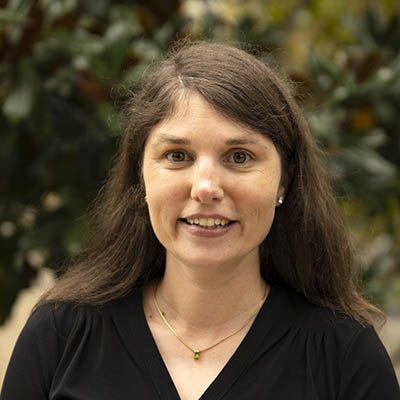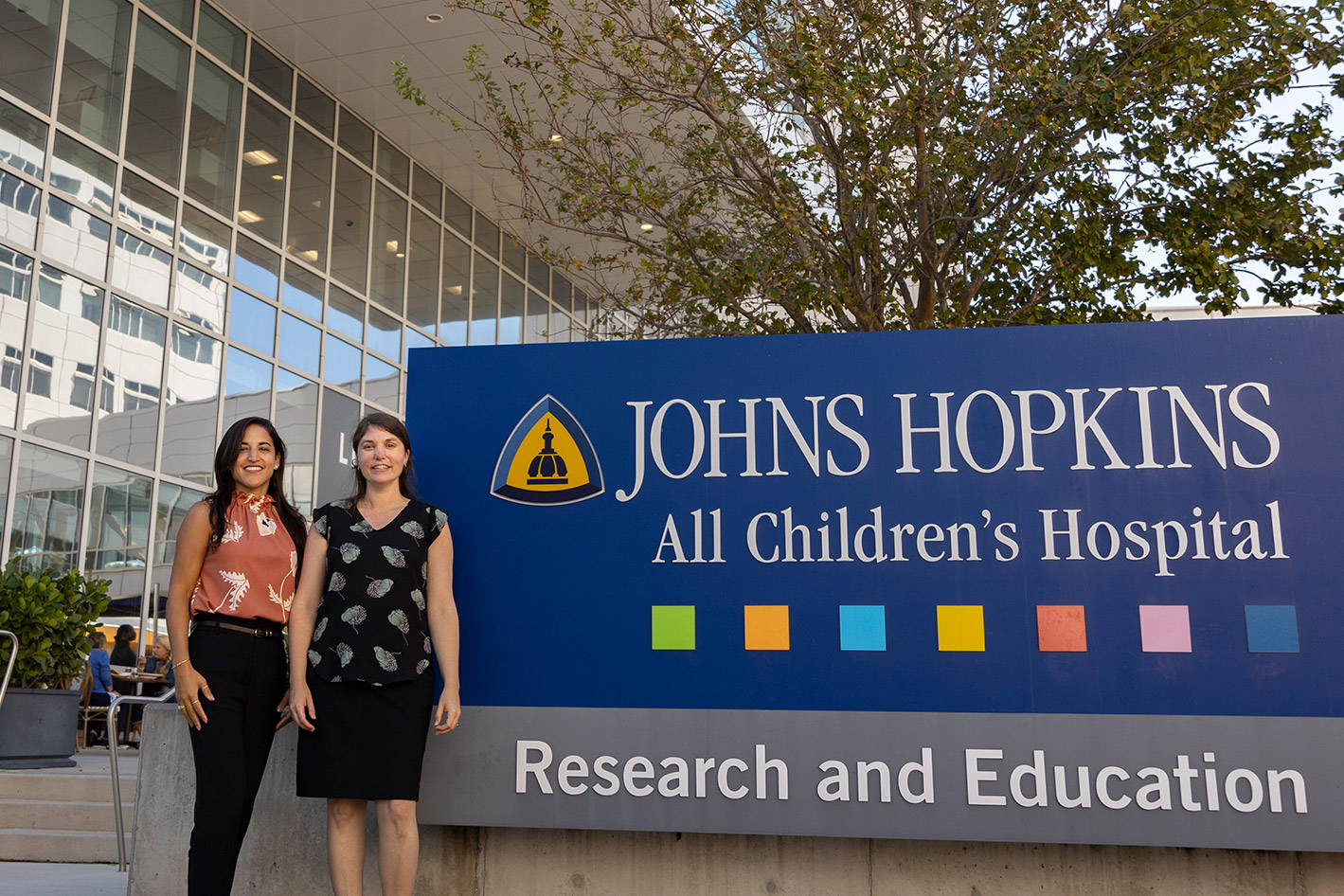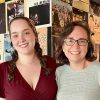The problem is serious, but not always obvious. Children and young adults often show up in hospitals, clinics and pediatricians’ offices with mental health issues like depression. But because they may lack specific training, some doctors have difficulty recognizing the problems, or they may be unsure about where to send the children for help.
Sara Hofmann, Ph.D., assistant professor of psychology at Eckerd College and a licensed psychologist, and her colleague from Johns Hopkins All Children’s Hospital in St. Petersburg have found a solution that involves training pediatric residents in a hospital setting with the help of actors. And now, thanks to a recent $20,000 grant from the Florida Chapter of the American Academy of Pediatrics, they’ll be able to share the program with other hospitals throughout Florida.
Jasmine Reese, M.D., is the director of the Adolescent and Young Adult Specialty Clinic at Johns Hopkins All Children’s. She also is the adolescent medicine rotation director for the hospital’s pediatric residency program, as well as an assistant professor of pediatrics at Johns Hopkins University School of Medicine.
Through her association with Lauren Highfill, Ph.D., professor of psychology and animal studies at Eckerd College, Reese connected with Hofmann in 2019. “Dr. Reese noticed in her clinic a lot of children coming in with mental health concerns,” Hofmann explains. “She did some research and found that about 65% of pediatricians don’t feel comfortable diagnosing and treating mental health issues.

Assistant Professor of Psychology Sara Hofmann, Ph.D.
“To address this gap, Dr. Reese suggested that we work with the Johns Hopkins resident pediatric physicians. She wanted to create a training program with mental health professionals that we could build from the ground up; there’s nothing like [this] that I know of in the country. I thought that was a fantastic idea, and that’s how I got involved.”
Hofmann notes that suicide is the second-leading cause of death among teenagers—behind only accidents. “It’s a crisis, and the pandemic set off a mental health tsunami among teenagers,” she says. “The point is for pediatricians to identify depression and then connect the adolescents with resources.”
Hofmann explains that most teenagers rarely, if ever, see a mental health professional, but many will see a pediatrician once a year. “So that’s why we are targeting pediatricians. If we can catch teenagers in their pediatrician’s office, rather than waiting until it gets so bad, that’s the goal.”
In the first half of the training, held at the Johns Hopkins All Children’s Hospital Center for Medical Simulation and Innovative Education, residents learn general information about depression, including its frequency and how to spot it. In the second half, which is a first for such training, a simulated patient is brought into an exam room. The “patient” is an actor hired and trained to role-play an adolescent with depression. “The residents not only learn what depression looks like,” Hofmann says, “but they also get a sense of what this is like in real time.”
Reese and Hofmann watch the exercise on video and then discuss it with the resident. It’s the same general idea, Hofmann notes, as a mock trial used by attorneys for training. Johns Hopkins has set aside a lab just for the simulations. “They’ve been incredibly supportive,” the professor adds.
The grant, Hofmann says, will allow the program to expand to other hospitals in Florida, and to find and train the actors who are key to the role-play exercise.
“This is right up my alley,” she adds, “and I love the idea of being able to work with the pediatricians. It’s a great way to get more kids the help they need.”













